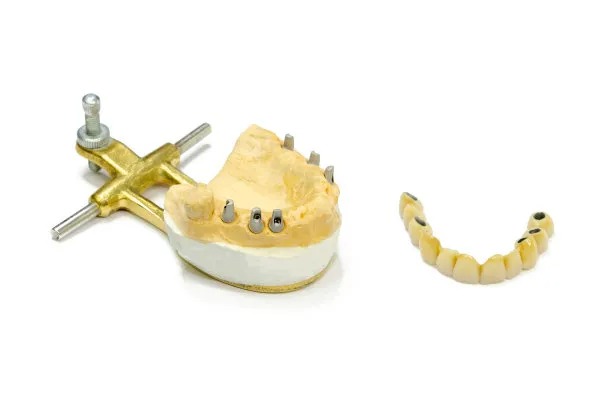Summary: Dental fillings are a crucial aspect of oral health, ensuring that cavities are treated effectively to restore tooth structure and functionality. However, before undergoing the procedure, certain essential precautions should be taken to optimize oral health and facilitate a smooth recovery. This article presents four main aspects to consider: evaluating your oral health, discussing filling materials with your dentist, preparing for the procedure, and post-filling care. Each aspect highlights the importance of preparation to mitigate risks and enhance the outcome of dental fillings.
1. Assessing Your Oral Health Thoroughly

Before undergoing a dental filling, it’s imperative to have a comprehensive assessment of your oral health. A thorough examination allows your dentist to identify the extent of decay and determine the appropriate treatment. Issues such as gum disease or tooth sensitivity can significantly impact the filling procedure.
Additionally, dental X-rays may be required to visualize the decay and underlying structure of the tooth, helping the dentist to make informed decisions regarding the treatment plan. Always inform your dentist about any previous dental work or conditions that may influence the filling process.
Finally, maintaining an honest dialogue about any discomfort or pain can aid in adequate preparation, ensuring that your dentist is well-equipped to address your concerns effectively. This level of diligence helps in setting realistic expectations for the filling procedure.
2. Discussing Filling Materials with Your Dentist
Understanding the different filling materials available is crucial for making an informed decision about your treatment. Materials such as amalgam, composite resin, and ceramic offer varying benefits in terms of aesthetics, durability, and cost. Discussing these options with your dentist can help you choose the best material tailored to your specific needs.
Composite fillings, for instance, are popular for their ability to blend seamlessly with the natural tooth structure. However, they may not be as durable as amalgam fillings, which are more resistant to wear, especially in high-pressure areas. Your dentist can provide insights about the longevity and maintenance of each filling material.
Additionally, consider any allergies or sensitivities you may have concerning certain materials. Being upfront with your dentist can prevent complications during the procedure and contribute to your overall comfort and satisfaction with the chosen filling.
3. Preparing for the Dental Filling Procedure
Preparation is key to ensuring a successful dental filling experience. On the day of your appointment, arrive with a list of questions or concerns to address with your dentist. It’s also advisable to inform them if you are taking any medications or if there have been any changes to your health since your last visit.
Moreover, its prudent to have a nutritional plan in mind, as you may experience numbness or discomfort following the procedure. Eating beforehand can help, but avoid hard or crunchy foods immediately after the filling, as these can put undue pressure on the newly treated tooth.
It’s also important to arrange for post-appointment transportation, especially if you are receiving sedation or other treatments that may impair your ability to drive. Proper planning ensures that you can focus entirely on recovery without additional stressors interrupting your oral health journey.
4. Effective Post-Filling Care for Recovery
Post-filling care is essential for optimal recovery and maintaining oral health. Following the procedure, your dentist will provide specific aftercare instructions which may include avoiding certain foods, practicing good oral hygiene, and managing any discomfort with over-the-counter medications.
It’s crucial to monitor your mouth for any adverse reactions, such as prolonged sensitivity or pain. If these symptoms persist, do not hesitate to contact your dentist for a follow-up appointment. Early intervention can prevent further complications and ensure the success of the filling.
Additionally, maintaining regular dental check-ups and practicing excellent oral hygiene will help prolong the life of your filling and prevent future cavities. Brushing at least twice a day and flossing daily are essential practices for a healthy smile.
Summary:
In conclusion, taking essential precautions before undergoing a dental filling can lead to improved oral health and a smoother recovery. By thoroughly assessing your oral health, discussing material options, preparing effectively for the procedure, and committing to post-filling care, you pave the way for a positive dental experience.
This article is compiled by Vickong Dental and the content is for reference only.
Vickong Dental
Vickong Dental is a large medical group established in Hong Kong in 2008 by professors from well-known medical universities in Guangdong and Hong Kong, as well as medical doctors from key national '985' universities (including Master's supervisors and senior professors). The chain of branches brings together expert dentists with PhDs and Master's degrees from Hong Kong and Mainland China, committed to providing high-quality dental treatment.
"Vickong Dental Practices the University Motto of 'Healing and Serving Society,' with a Stable Operation for Sixteen Years. It Has Been honored with Hong Kong Enterprise Leaders's Choice,' and is a Global Trusted Implant Center for the Nobel Implant System. Recommended by Hong Kong Metro Broadcast and Guangdong Television, it Serves Customers from Over Thirty Countries and Regions, Gaining the Trust and Favor of Citizens from the Guangdong-Hong Kong-Macau Greater Bay Area and Surrounding Cities.

Thousands of customers' unanimous praise
The most recognized and highly recommended dental service by customers in the Guangdong-Hong Kong-Macau Greater Bay Area
We Ensure You Receive Detailed Care and Attention Here
Hong Kong standards, Shenzhen prices, Your Trusted English-speaking dentists

Vickong Dental Medical-Grade Instrument Disinfection Process
Vickong Dental Medical-Grade Instrument Disinfection Process

Vickong Dental Chain: A Warm and Comfortable Environment for Treatment






Appointment Hours

Q&A
Why choose Vickong Dental?
Vickong Dental practices the university motto 「Medicine to Benefit Society」, with each branch bringing together highly qualified dentists with doctoral and master’s degrees from Hong Kong and the Mainland, and has maintained seventeen years of steady operation。Recipient of 「2024 Hong Kong Enterprise Leaders Brand」, 「2025 Hong Kong Enterprise Leaders Brand」, a Nobel Biocare Global Trusted Implant Center, and a brand recommended by Metro Radio Hong Kong and Guangdong TV。
To date, we have served customers from more than thirty countries and regions,earning exceptionally high word-of-mouth recognition and trusted recommendations from residents across the Guangdong-Hong Kong-Macao Greater Bay Area and surrounding cities
We have eight major branches in Zhuhai、Shenzhen,and a consultation and service assurance center in Hong Kong,so you can book a free consultation at any time for any questions,which is very reassuring.
If I do not accept the quotation after the CT scan, will I be charged??
No! As long as the actual treatment has not started, you will not be charged any fees.
Will there be any additional charges during the treatment process?
No, there won’t be any additional charges. Before treatment begins, we will clearly explain the treatment plan and its corresponding fees. Only after the patient agrees and signs the consent form will we proceed with the dental service.
Can I pay in Hong Kong dollars?
Yes. Vickong Dental accepts payment in Hong Kong dollars. The amount will be converted based on the exchange rate of the day, and the applicable rate will be clearly communicated to you in advance.
Can I reschedule my appointment at any time?
Yes. Please contact us via **WeChat** or **WhatsApp** as early as possible, providing your original appointment time and details, along with your preferred new date and time slot for rescheduling.













